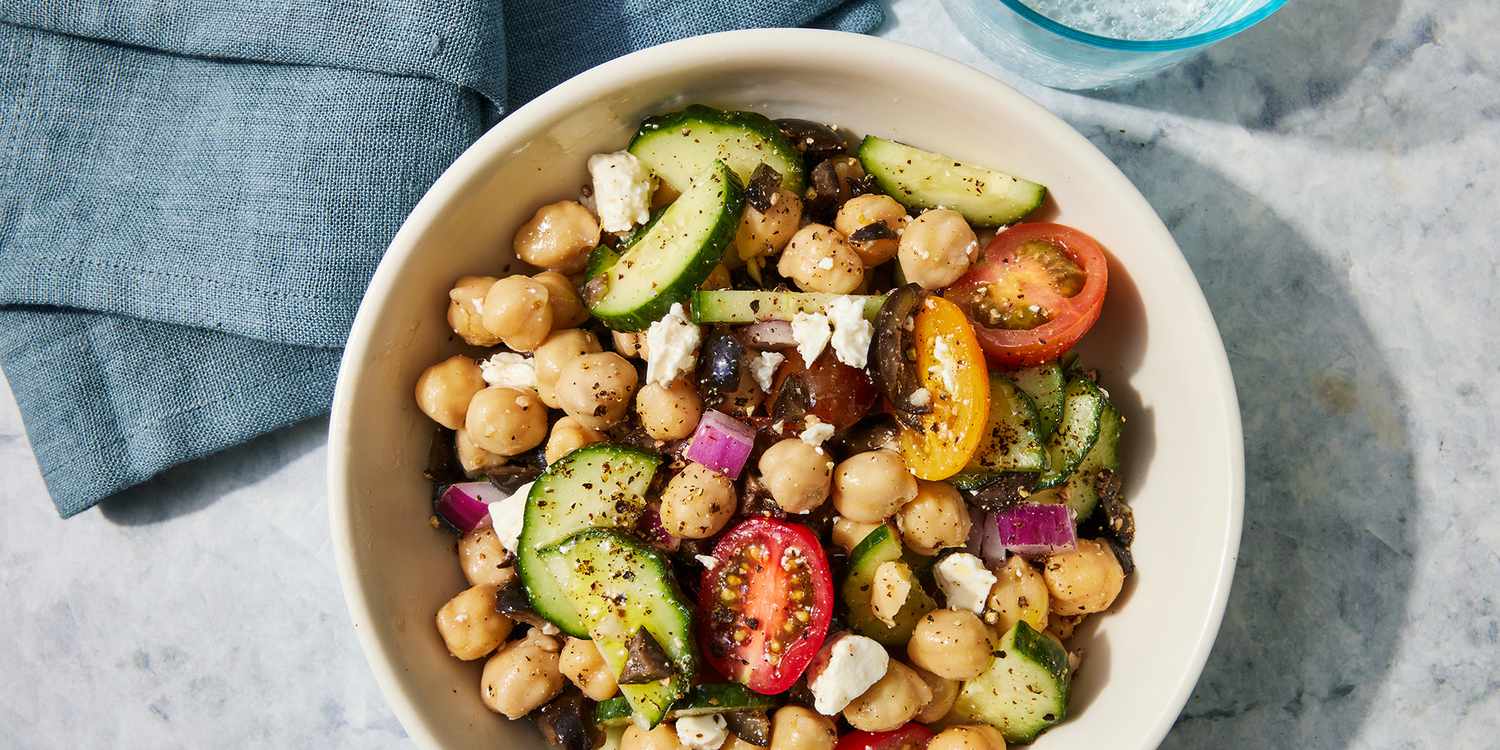by Matt Weik, BS, CSCS, CPT, CSN
Well… another TikTok recipe is making its way around the industry, and this time it’s a dense bean salad.
Canned beans have long been a pantry staple for a good reason. They are quick, convenient, and packed with nutrients. While cooking dried beans from scratch is always an option, reaching for a can and giving it a rinse can save time without sacrificing much nutritional value.
Dense bean salad is a simple, high-protein salad that has become a daily go-to for many who are trying to improve their nutrition. The appeal is in its simplicity, versatility, and the fact that it helps meet protein needs with minimal effort.
But in this article, we are going to dive deeper into dense bean salad and get a better understanding of whether it’s something you should consider trying or if you’re wasting your time and money on something that isn’t that great for you.
Disclaimer: This article is for informational purposes only and is not meant to treat or diagnose any condition. It is recommended that you speak with your doctor before starting any exercise program, making changes to your nutrition plan, or adding any new supplements into your current regimen.
What is Dense Bean Salad?
If you’re a fan of TikTok (I’m not), you’ve probably seen this viral bean salad recipe that has drawn millions of views online because of its colorful mix of vegetables, proteins, and pantry staples.
The preparation of dense bean salad starts with chopped shallots, flat-leaf parsley, and two bell peppers. A few fresh basil leaves and a full container of halved cherry tomatoes add brightness and flavor.
To bulk up the salad, ingredients like pepperoni, sliced smoked chipotle chicken, sundried tomatoes, artichoke hearts, and mozzarella balls are added. The beans play a central role in the dish, with canned cannellini beans and chickpeas forming the hearty base.
The dressing combines sundried tomato oil, garlic-infused olive oil, white wine vinegar, mustard, pizza seasoning, and sea salt. One unique detail is how the dressing is blended using a milk frother, which gives it a smooth, creamy texture.
Once mixed, the salad is portioned into deli containers for easy storage. Many who try the dense bean salad recipe mention that it keeps well throughout the week and stays fresh when prepared as directed.
What RDs Are Saying About Dense Bean Salad
Dietitians recommend building balanced meals with plenty of vegetables, protein, quality carbs, and healthy fats. Dense bean salads fit right into that approach, making them a solid option from a nutrition standpoint.
Below are five things experts want you to know about dense bean salads and why they are worth adding to your weekly meal prep.
1. Dense bean salads are nutritious
Dense bean salads are a great source of plant-based protein, fiber, and essential nutrients while staying low in fat. Ingredients like cucumber, cherry tomatoes, and artichoke hearts add fiber and antioxidants that support digestion and protect cells.
They also provide magnesium, which aids in sleep and relaxation, and are rich in iron and folate, which are beneficial for hormone regulation.
2. It could help prevent disease
Eating beans with fiber-rich vegetables may help lower the risk of heart disease, cancer, and diabetes. Beans are also known to help reduce cholesterol levels.
They are important for diets in blue zone regions, where people often live longer, healthier lives. These areas include places like Sardinia, Ikaria, and Loma Linda.
Beans, chickpeas, veggies, and lean meats are also staples in the Mediterranean Diet, which supports better memory and lowers the risk of type 2 diabetes.
3. Dense beans can be great for digestive health
Beans provide both soluble and insoluble fiber, which can support digestion, ease constipation, and help regulate bowel movements.
They also work as prebiotics by feeding the good bacteria in your gut. This helps maintain a healthy microbiome, which supports digestion, nutrient absorption, and immune health.
Dense bean salads can help boost fiber intake, which is often too low. While the USDA recommends 14 grams of fiber per 1,000 calories, only a small percentage of people consistently meet that goal.
4. Dense bean salads support fullness and easy meal prep
Dense bean salads help keep you full longer because both protein and fiber digest slowly. This can support better appetite control and aid in weight management.
They are also convenient. Unlike leafy salads that wilt quickly, dense bean salads store well and are ready to eat anytime.
The hearty mix of beans and vegetables holds up over several days, allowing the dressing flavors to blend without making the salad soggy.
Are There Any Downsides to Dense Bean Salads?
While dense bean salads have plenty of benefits, there are a few things to watch out for.
If you’re not used to eating a lot of fiber at once, it could lead to bloating, gas, or discomfort. Beans are high in FODMAPs, which can trigger symptoms for those with IBS or sensitive digestion. To ease into it, start with a smaller portion and gradually increase.
A smaller serving can also be added to a wrap or sandwich to make it more balanced.
Another thing to consider is meal prep fatigue. Eating the same salad every day might get boring by the end of the week. Plus, your gut benefits from a variety of foods.
If you enjoy bean salads, try switching up the veggies, beans, or dressings each week to keep it fresh and more nutritious.



